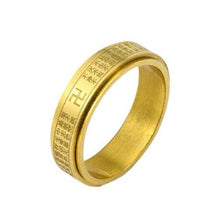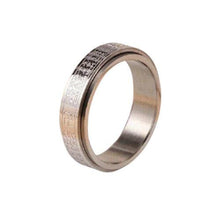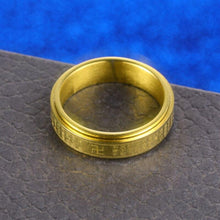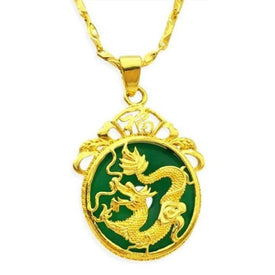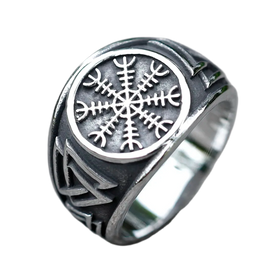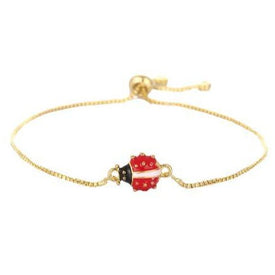Swastika Ring
- Regular price
- €19,90
- Sale price
- €19,90
- Unit price
- per

Secure payment

French store

Easy return

Free delivery
The Swastika ring is above all a religious symbol. Buddhism, Hinduism: it is very widespread in Asia.
- The swastika: an ancient symbol
- Top quality Tibetan and Indian lucky charm
- According to ancient traditions, wearing the swastika helps us achieve happiness
- Be careful, there is nothing fascist about the meaning of this ring, Nazi Germany did exist.
- Material: stainless steel
- Refund ALWAYS possible (see our returns policy)
- FREE STANDARD DELIVERY
Isn’t that a swastika on this Swastika ring?!
Absolutely not !
Where the branches of the Nazi emblem turn to the right, those of this swastika ring go to the left.
We are actually talking about a very ancient lucky symbol. The first traces are found in the Balkans, where they are dated to more than 12,000 BCE.
Nowadays, the swastika is mainly found in India and Tibet... but there was a time when it was very common in Europe.
Remains of this type of swastika ring have been found in the ruins of the ancient Greek city of Troy, which is dated over 4,000 years ago.
Celtic Druids also used the swastika during certain rituals.
Even the early Christians used it as one of their symbols of recognition.
The Sanskrit (Indian language) word "swastika" means "well-being" or "good luck".
In Buddhism and Hinduism, it represents luck, prosperity and abundance.
It is also not rare to find this type of swastika ring on the fingers of Buddha statues.
A Tibetan lucky charm par excellence, it is in this country that this symbol occupies the greatest place. The swastika is widely used there in monasteries and homes, for making costumes and decorations for festivals, etc.
When constructing a new building, it is often painted on the foundations to ensure that the building remains solid over time.
Some Tibetan women like to wear a swastika ring on their finger, or embroider one on the back of their clothing. They think it offers them some kind of protection.
In short, we must leave our preconceptions aside: this swastika ring has nothing to do with the Nazi regime.
It represents a very powerful ancient symbol that it would be stupid to ignore for such absurd reasons.
So, are you ready to keep your mind open?
What delivery costs do I have to pay?
We have decided to cover the delivery costs. Concretely, except in certain special cases (notably for overseas regions), you will not have to pay anything . No fees, no additional costs.
What delivery time should I expect?
This may necessarily vary for each order. However, we undertake to finalize and send you the shipment within 48 hours of your order.
In any case, you will be entitled to request a full refund of your order if it has not reached you within 2 months. (Don't worry, this is just a deadline and not a forecast!)
Do you provide tracking numbers?
Of course ! We will also add it to the status of your order as soon as the transport companies send them to us.
As we are committed to guaranteeing you maximum satisfaction, it is always possible to contact us via the address contact@la-porte-du-bonheur.com or our contact form.
I have other questions. Can I call you ?
Once again, it is easy to contact us by email at contact@la-porte-du-bonheur.com or via our contact form.
So don't hesitate to ask us any questions about our products, our blog articles or our project in general. We will be happy to respond to you as quickly as possible.
As a newly translated French store, most of our product reviews are written in French. We've decided not to translate them, in order to stay true to what our customers think of us.





